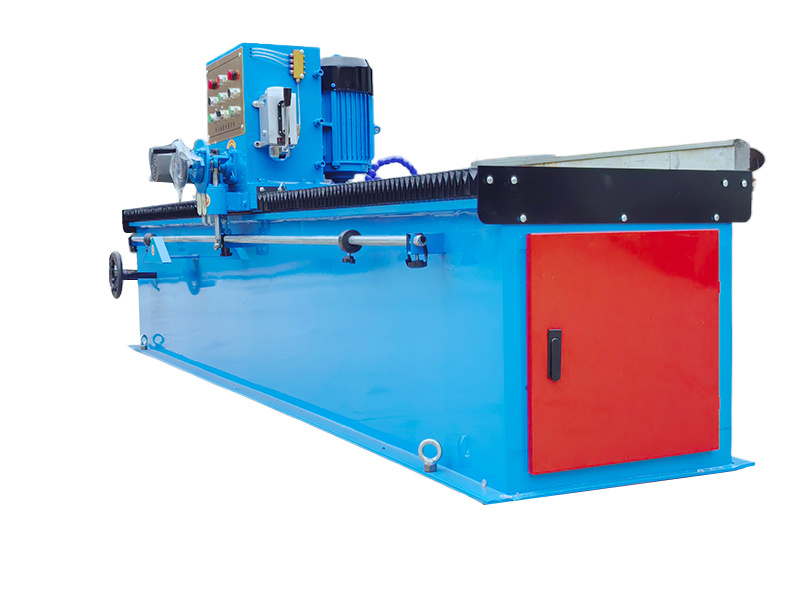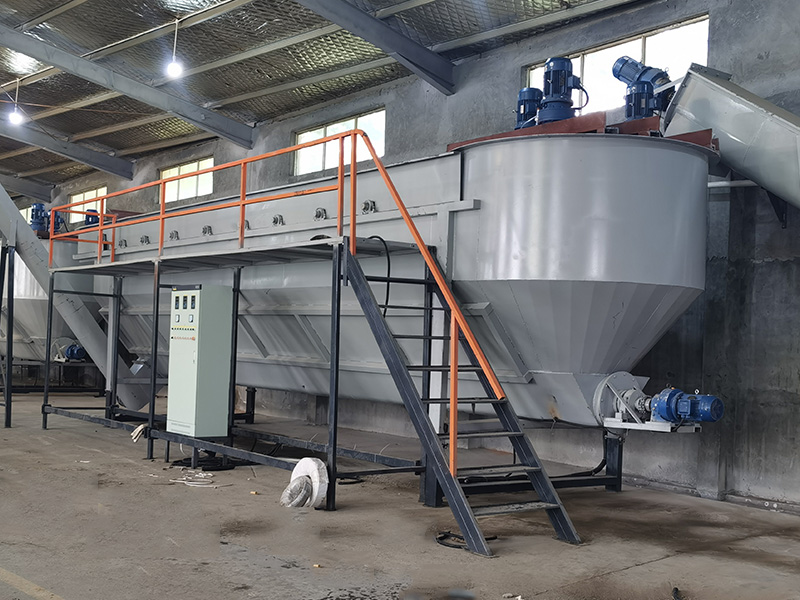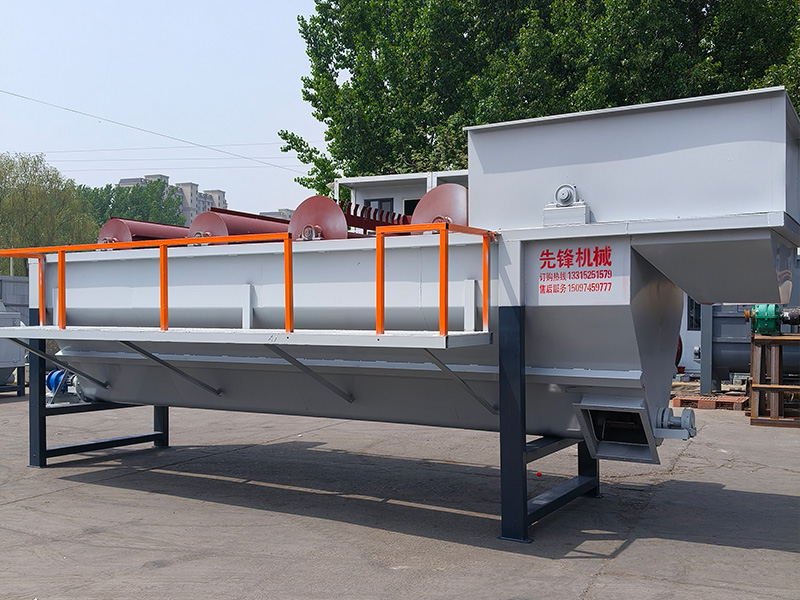Why Flotation Tanks Are Essential for Modern Plastic Recycling Processes
Why Flotation Tanks Are Essential for Modern Plastic Recycling Processes
Table of Contents
Introduction to Flotation Tanks in Plastic Recycling
What Are Flotation Tanks?
The Importance of Flotation Tanks in Recycling
How Flotation Tanks Work
Benefits of Using Flotation Tanks for Plastic Recycling
Applications of Flotation Tanks in Various Industries
The Future of Flota
Jun 23,2025

Why Flotation Tanks Are Essential for Modern Plastic Recycling Processes
Table of Contents
- Introduction to Flotation Tanks in Plastic Recycling
- What Are Flotation Tanks?
- The Importance of Flotation Tanks in Recycling
- How Flotation Tanks Work
- Benefits of Using Flotation Tanks for Plastic Recycling
- Applications of Flotation Tanks in Various Industries
- The Future of Flotation Tank Technology in Recycling
- FAQs
- Conclusion
Introduction to Flotation Tanks in Plastic Recycling
The growing concern over plastic waste and its environmental impact has propelled industries to innovate and adopt sustainable practices. In the realm of plastic recycling, flotation tanks are becoming increasingly crucial. They allow for efficient separation and processing of various plastic types, ensuring that the recycling process is not only effective but also environmentally friendly. This article elucidates why flotation tanks are essential for modern plastic recycling processes, exploring their mechanics, advantages, and future developments.
What Are Flotation Tanks?
Flotation tanks are specialized vessels used in the separation of materials based on differences in their physical and chemical properties. Utilizing a process called flotation, these tanks separate plastics from contaminants and other materials in a mixture, allowing for cleaner, more efficient recycling.
The Science Behind Flotation
At its core, flotation works on the principles of buoyancy and surface chemistry. Materials that are less dense than water can be floated to the surface, while denser materials sink. By introducing air bubbles into the tank, the target materials attach to the bubbles and rise, allowing for easy collection.
The Importance of Flotation Tanks in Recycling
Flotation tanks play a pivotal role in enhancing the plastic recycling process. As more plastics enter the market, the need for efficient recycling methods has never been greater. Here are several reasons why flotation tanks are indispensable:
Enhanced Separation Efficiency
Flotation tanks facilitate the effective separation of different plastic types, which is critical for recycling. By isolating plastics based on density and size, they reduce contamination and improve the quality of recycled materials.
Reducing Environmental Impact
By maximizing the recovery of plastics, flotation tanks significantly reduce the amount of waste that ends up in landfills. This not only conserves natural resources but also lessens the environmental footprint associated with plastic production.
Cost-effectiveness
Implementing flotation technology can lead to substantial cost savings. Companies save on landfill fees and raw material costs by sourcing high-quality recycled plastics, making the recycling process more economically viable.
How Flotation Tanks Work
Understanding the operation of flotation tanks can demystify their significance in plastic recycling. Here's a step-by-step breakdown of the flotation process:
1. Feed Preparation
Before entering the flotation tank, the plastic waste is pre-processed to remove large contaminants. This may involve shredding and washing the materials to ensure they are suitable for flotation.
2. Introduction of Chemicals
A variety of chemicals may be added to modify the surface properties of the plastics. These chemicals enhance the hydrophobicity of the desired plastics, making them more likely to attach to air bubbles.
3. Air Supersaturation
Air is introduced into the flotation tank, creating bubbles that rise to the surface. The hydrophobic plastics adhere to these bubbles, while contaminants and heavier materials sink to the bottom.
4. Collection and Recovery
The floated materials are skimmed off the surface, while the unwanted materials are collected from the tank's bottom. This results in a cleaner, more manageable output of recycled plastics.
Benefits of Using Flotation Tanks for Plastic Recycling
The benefits of flotation tanks in plastic recycling extend beyond mere separation. Let's explore some of these advantages in detail:
Improved Quality of Recycled Plastics
By effectively segregating plastics, flotation tanks result in higher-quality recycled materials which can be used in manufacturing new products. This leads to a closed-loop system where recycled plastics are reintroduced into production.
Operational Flexibility
Flotation tanks can be tailored to different types of plastic waste streams. This flexibility allows recyclers to adapt their operations to handle various materials efficiently.
Reduction of Processing Time
The flotation process can operate continuously, significantly reducing the overall processing time compared to traditional methods. This efficiency translates into higher throughput for recycling facilities.
Applications of Flotation Tanks in Various Industries
Flotation technology is not limited to plastic recycling alone. Its versatility allows for applications in various industries, enhancing material recovery processes. Here are some notable applications:
1. Mining Industry
Flotation is widely used in the mining of metals and minerals, separating valuable ores from unwanted materials. The principles of flotation applied here are similar to those used in plastic recycling.
2. Wastewater Treatment
In wastewater treatment facilities, flotation tanks help remove suspended solids and oils from water, promoting a cleaner effluent release into the environment.
3. Paper Recycling
Flotation technology assists in the recycling of paper products by separating fibers from contaminants, enhancing the quality of recycled pulp.
The Future of Flotation Tank Technology in Recycling
As the demand for sustainable practices in recycling grows, the future of flotation tank technology appears promising. Innovations and advancements are expected to enhance efficiency and effectiveness further.
Emerging Technologies
New technologies, such as automated flotation systems and improved chemical agents, are in development to optimize the flotation process. These advancements aim to achieve higher recovery rates and reduce operational costs.
Integration with Artificial Intelligence
The integration of AI and machine learning can revolutionize flotation processes by optimizing operational parameters and predicting maintenance needs, ultimately leading to more efficient recycling operations.
FAQs
1. What types of plastics can be recycled using flotation tanks?
Flotation tanks can effectively separate various types of plastics, including PET, HDPE, PVC, and PS. The efficiency often depends on the specific flotation conditions.
2. How does flotation technology compare to other recycling methods?
Flotation offers superior separation efficiency and quality of output compared to mechanical sorting methods, making it a preferred choice for many recycling operations.
3. Are flotation tanks environmentally friendly?
Yes, flotation tanks contribute to environmental sustainability by maximizing plastic recovery and reducing waste sent to landfills.
4. What maintenance is required for flotation tanks?
Regular maintenance includes cleaning, inspecting for wear and tear, and calibrating the system to ensure optimal performance.
5. Can flotation tanks handle mixed plastic waste?
Flotation tanks are designed to handle mixed plastic waste, although preprocessing may be required to optimize separation efficiency.
Conclusion
Flotation tanks represent a vital component in modern plastic recycling processes, enhancing efficiency, improving material quality, and reducing environmental impact. As industries continue to seek sustainable solutions, the role of flotation technology will only grow in significance. By investing in innovative flotation systems, recycling facilities can lead the charge in creating a circular economy for plastics, ensuring a cleaner, greener future.
TAG:
Contact Us
E-mail :
Phone/WhatsApp:
Address:
Shunping, Baoding City, Hebei Province









